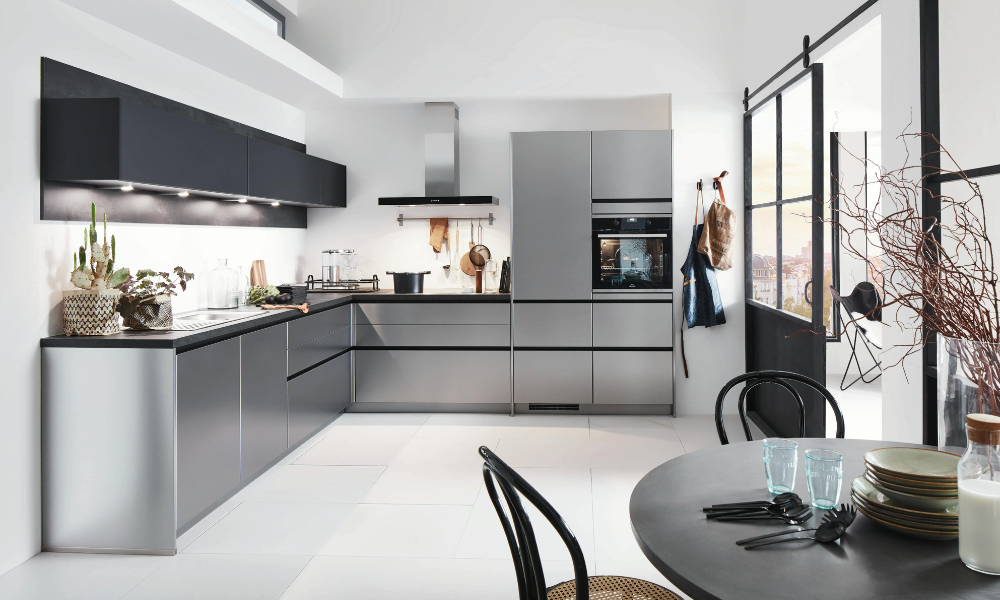
How to Maintain Your Modular Kitchen Interiors Chennai in the Rainy Season
Homeowners love their kitchens but often face their toughest test during the rainy season, when humidity rises, surfaces stay damp, and wooden elements become more vulnerable than ever. While monsoon rains bring comfort and coolness, Modular kitchen interiors Chennai also encounter challenges like moisture buildup, fungal growth, sticky cabinets, and persistent odors. If your kitchen is the heart of your home, protecting it during this season becomes crucial—not just for hygiene, but also for the longevity of your cabinets, hardware, and daily-use fittings.
In a coastal city like Chennai, the monsoon brings heavy moisture-laden winds that can creep into every corner of your kitchen. That’s why many homeowners rely on seasoned interior designers in Chennai to create functional, climate-resistant kitchen layouts. But even the best design needs routine care. So, let’s explore the most effective, practical, and easy-to-follow tips to keep your modular kitchen fresh, durable, and attractive all through the rainy months.
Why Monsoon Affects Modular Kitchens More Than Expected
You may not notice it immediately, but the rainy season triggers silent changes in your kitchen environment. Humidity reaches its peak, which directly impacts wooden cabinets, shutters, and metal fittings. Doors may swell, drawers might feel tighter, and countertops may develop moisture spots. Even premium kitchen materials are not fully immune to long hours of dampness.
That’s precisely why the best interior designers in Chennai choose monsoon-friendly materials and finishes for kitchens. However, using the space daily means you must also follow the right maintenance practices. With the right habits, your kitchen will remain clean, odor-free, and structurally sound despite the weather.
1. Let Your Kitchen Breathe: Ventilation Matters Most
During monsoon, a well-ventilated kitchen is your strongest shield against moisture. When humid air gets trapped inside cabinets or beneath the countertop, it creates the perfect environment for mold and unpleasant smells.
Try these ventilation boosters:
- Keep windows slightly open whenever possible to allow fresh airflow.
- Switch on your chimney even after cooking—about 10 to 15 minutes extra.
- Install an exhaust fan if your kitchen feels suffocating or lacks natural ventilation.
- Leave cabinet doors open occasionally to release trapped humidity.
Many experienced interior decorators in Chennai plan cross-ventilation carefully for this very reason. Just a little air movement every day keeps moisture — and problems — away.
2. Adopt Monsoon-Smart Cleaning Methods
Your regular cleaning routines need a seasonal upgrade. Damp countertops, moist sinks, and greasy backsplash tiles become magnets for bacteria during rain.
Monsoon-friendly cleaning tips:
- Use a microfiber cloth instead of a cotton one. It dries faster and absorbs more.
- Never leave wet utensils or cloth inside cabinets.
- Deep-clean stovetops and chimneys regularly to prevent sticky residue buildup.
- Wipe all metal hardware—hinges, handles, drawer channels—after cooking.
If your kitchen is part of premium home interiors in Chennai, good cleaning habits will keep it shining like new for years.
3. Stop Fungus Before It Starts: Easy Moisture Control Tricks
The real monsoon villain is not rain—it’s fungus. Fungus thrives in dark, closed, and humid spaces, especially inside wooden cabinets.
Effective fungus-prevention ideas:
- Keep silica gel packets, camphor balls, or activated charcoal inside shelves.
- Store baking soda in small open bowls to absorb musty odors.
- Use a natural anti-fungal solution—vinegar + water—to wipe inside cabinets.
- Regularly check the under-sink area, the most common place for fungal growth.
Following these small steps ensures your kitchen smells fresh and stays hygienic throughout the season.
4. Protect Your Wooden Cabinets from Seasonal Swelling
Wood expands when exposed to moisture. Even high-quality BWR or BWP plywood can swell slightly if you don’t maintain it properly during monsoon.
Wood-protection tips:
- Avoid overloading cabinets to allow better air circulation.
- Apply a thin coat of waterproofing wax to wooden surfaces.
- Ensure edge banding is intact and repair any loose edges immediately.
- Keep cabinet interiors dry—never close shutters with wet utensils inside.
Because of Chennai’s climate, many interior designers in Chennai prefer HDHMR boards or moisture-resistant laminates for longevity.
5. Keep an Eye Out for Leaks and Seepage
Water seepage is sneaky. It may start small, but it can ruin cabinet bases, weaken walls, and even affect electrical outlets if ignored.
Inspect these areas regularly:
- Under the sink
- Around the backsplash area
- Near window edges
- Behind the dishwasher or washing machine
- Under the countertop, especially near joints
Fix leaks as soon as you notice them. During monsoon, a single drop can quickly turn into a damaging leak.
6. Choose Durable, Monsoon-Resistant Materials
If you’re designing or renovating your kitchen, selecting the right materials is one of the smartest decisions you’ll ever make. Weather-resistant materials not only prevent damage but also add years of durability to your kitchen.
Material recommendations from the best interior designers in Chennai:
- BWP/BWR plywood or moisture-resistant boards
- Stainless steel 304-grade hardware to avoid rust
- Quartz or granite countertops for strength
- High-pressure laminates or acrylics for cabinets
- Anti-skid, moisture-proof tiles for flooring
These materials stand strong against moisture, steam, and daily cooking activities.
7. Maintain Freshness with Natural Odor Eliminators
Monsoon odors can be stubborn, especially in the kitchen where heat and humidity mix every day.
Natural freshness boosters:
- Place coffee grounds in small bowls—they absorb odors beautifully.
- Keep lemon slices or orange peels near the sink area.
- Use herbal air fresheners or natural essential oil diffusers.
- Clean the drain weekly using a hot water + vinegar mix.
These small steps create a pleasant cooking environment, even on gloomy rainy days.
8. Make Drying a Daily Habit
Moisture left on surfaces—even for a few minutes—can cause trouble in monsoon. A simple daily drying habit can save your cabinets, hardware, and countertops from damage.
Drying routine:
- Wipe countertops immediately after cleaning.
- Dry the sink after every wash.
- Air-dry wet containers before putting them back.
- Keep a small table fan handy to speed up drying on humid days.
Your kitchen will stay cleaner and look more polished with this one habit alone.
Taking care of your modular kitchen during the rainy season doesn’t require huge effort—just thoughtful habits. From improving ventilation to preventing fungal growth, from protecting wooden cabinets to choosing the right materials, every small step adds to the lifespan of your kitchen.
we create stylish and durable Modular kitchen interiors Chennai residents love—spaces designed to handle coastal humidity, daily cooking, and long-term use effortlessly. Our team of expert interior decorators in Chennai and experienced interior designers in Chennai are committed to crafting kitchens that look stunning and work beautifully in all seasons. That’s one reason many homeowners proudly consider us among the best interior designers in Chennai.
With the right seasonal care, your modular kitchen can remain fresh, strong, and beautiful—even when the rain pours nonstop.
Frequently Asked Questions (FAQ)
To protect your modular kitchen from moisture, ensure proper ventilation, keep windows slightly open, use exhaust fans or chimneys, and wipe surfaces dry after cooking. Adding silica gel, camphor, or activated charcoal inside cabinets also helps absorb excess humidity.
Chennai’s coastal climate brings high humidity and moisture-laden winds during the monsoon, which can lead to swelling of wooden cabinets, rusting of hardware, and fungal growth. This makes monsoon maintenance extra important for kitchens in the region.
Keep cabinet interiors dry, use silica gel packets, place baking soda in small bowls, and wipe cabinets with a mild anti-fungal solution (vinegar + water). Also, avoid closing cabinets with wet utensils or cloth inside.
For moisture-prone climates, experts recommend BWR/BWP plywood, HDHMR boards, quartz or granite countertops, moisture-resistant laminates, and stainless-steel (304 grade) hardware. These materials perform well even during humid monsoon months.
Yes, wooden cabinets can swell, warp, or develop fungal spots if exposed to continuous moisture. Regular drying, ventilation, and occasional use of waterproofing wax help protect them during monsoon.
